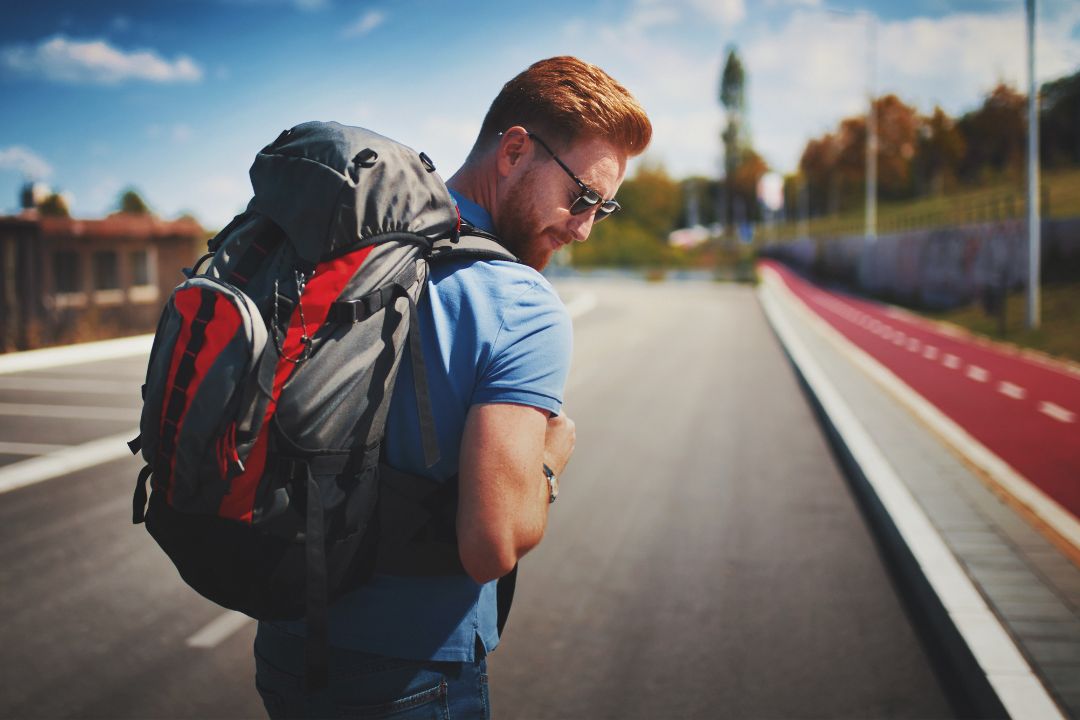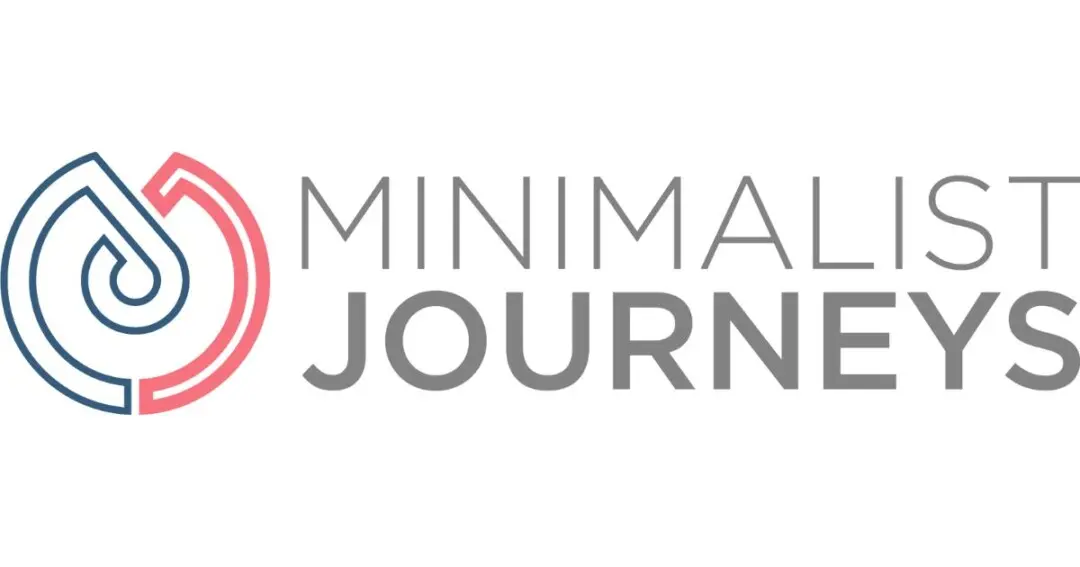This article may contain links to products and services we use and recommend. We may receive compensation when you click on links to those products. For more information, see our Disclosure Policy.
When we talk to people we meet on the road, we often hear them say, “That was a bold move” or “I’m not that brave“, referring to our decision to let go of the financial security of our well-paying careers. People are often afraid to change their lives or jobs for fear of the unknown—ourselves included (until we take the leap).
When we decided to swap our careers for long-term travel, we gave ourselves three years (from 2016 to 2019) to make it work. What if it didn’t work? What if we had to return to the corporate world after those three years (or at some stage later)? Would a potential employer perceive our lifestyle as an indulgence, or would they see value in our experiences? How easy would it be to find fulfilling work in the corporate world on either side of the magic Five-O? Would long-term travel hurt our career prospects?
We imagine these questions would be even more existential for someone with younger children or people older than us.
To help us answer these questions, we searched the Internet for information about the world of tomorrow and what it means for the workforce in 2025 (and beyond).
How will the world change over the next decade?
According to experts in the field of future studies, we are on the cusp of the Fourth Industrial Revolution, in which digital, physical, and biological systems are becoming increasingly entwined. Machine learning, global connectivity, increasing longevity, and resource scarcity are expected to significantly alter the way we live, learn, work, and interact with each other.

How will AI affect our future? This is a debate raging right now.
One thing seems inevitable. Technology will change the types of jobs required in future. This trend started with the First Industrial Revolution, and we have all been exposed to it somehow (think of online banking reducing the number of bank branches as an example).
Nobody can predict what jobs will continue and which will disappear as the Fourth Industrial Revolution unfolds. Some even argue that we may see a system shift that will allow us to be free to work rather than work to make a living, thanks to concepts such as the Universal Basic Income.
Whatever direction we take, the type of skills required to add value and remain relevant in the world of tomorrow seems easier to determine. So, let’s have a look at those.
What skills are employers likely to look for in future?
The same three skill areas appear across all the research we have done in preparation for this post. These are:
- Our ability to think critically, filter out the noise and drive unique (data-driven) insights to solve complex, multifaceted problems.
- Our ability to think creatively (outside the box), operate flexibly and be open and adaptive to change.
- Our ability to communicate and interact effectively to unite and inspire people beyond our discipline, generation, location or culture.
Interestingly, none of these skills are new or surprising – at least not in the field of our prior work in Management Consulting and Product Management. In these skill areas, humans still trump machines, at least for the foreseeable future.

Collaboration is and always will be a critical skill
So, with us having left our respective careers, how do we stack up in the pursuit to add value and remain relevant in the future?
What skills and experiences can you gain from long-term travel?
We have just completed our eighth year of full-time travel, absence from the corporate world, and running our start-up business. These past years have been tremendous for our personal and professional growth. Why?
Firstly, our lifestyle change enabled us to slow down:
- We no longer have to rush around and squeeze as much as possible into a few weeks of an annual vacation. We have time to explore, learn, absorb, think and reflect. We have time to talk to people, ask questions and listen.
- We have become more self-conscious and in tune with our environment. We have become better Spanish speakers. Our knowledge of and appreciation for world history have grown exponentially, and we are more curious than ever.
Secondly, living among locals, spending time with them and speaking their language has enabled us to make meaningful connections with people from different cultural backgrounds and walks of life.
We have become more tolerant and less biased/judgmental. Our travels, the countries we visit, and the people we meet all provide perspective, make us appreciate how lucky we are, and encourage us to be better and make a difference.

New Delhi street
Thirdly, we operate outside our comfort zone every day, as every country and, indeed, every location we find ourselves in is different. Our eyes are wide open and very alert to our surroundings. The diversity and challenges we encounter during our travels have taught us patience and have made us more adaptive and resilient problem solvers.
Long-term travel takes a certain type of person […]. You need to be independent, […] you need to be flexible, and you need to be able to deal with constant change – Nomadic Matt
Contrary to the myth of digital nomad life that some try to portray, we don’t laze by the beach, sipping cocktails all day. Similarly, these past years were not extended holidays.
We may live in and explore different locations worldwide, but we work… every day, including on weekends. It doesn’t feel like work, as we enjoy what we do wholeheartedly.
We may have left our corporate careers but use our existing skillsets daily. Given we are running a business together, we have divided key roles according to our strengths and areas of expertise:
- Sandra combines the roles of Chief Executive Officer, Chief Strategist, Chief Financial Officer and Chief Editor;
- Paul is our Chief Technology, Operating, and Marketing Officer.

Digital Nomad in Cafe
As we develop our business, we learn new skills (often the hard way): copywriting, SEO, Web design, Video editing, Online marketing, and Affiliate Marketing, to name just a few.
We are broadening our networks to engage with and learn from fellow minimalists, travel and lifestyle bloggers, and online entrepreneurs.
We are exposed to tourism services—whether accommodation, transport, or activities—on a daily basis. This not only enables us to appreciate what good service looks like and to challenge bad service but also to learn the dos and don’ts for our future business endeavors.
What could be (perceived as) a hindrance?
One of the key challenges for future employment would likely be our age. We don’t kid ourselves. However, with an ageing population and continued skill scarcity (especially in countries like Australia and New Zealand), we believe there will be opportunities for people of all ages.
Research now tells us that what makes a group truly intelligent and innovative is the combination of different ages, skills, disciplines, and working and thinking styles that members bring to the table – Institute for the Future / University of Phoenix Research Institute
Conversely, our willingness to return to corporate life as we know it would be a big question mark (for ourselves). We have experienced an alternative. While it’s been six years, we have gained so much from it already that it would be hard to give up and (near) impossible to step back into old habits.
Returning to corporate life would look very different from our life before we embarked on this journey. We are free to work and contribute to society in a way that aligns with our values. If we had to return to Corporate Land, we would be looking for roles closely aligned with our values. Our employer selection would be holistic: with our salaries less of a driver and genuine work/life balance, a supportive and inclusive corporate culture, and an industry we are happy to support playing a much more significant role.

Team building
How easy will returning to a corporate career after long-term travel be?
Comparing our skills and experiences (gained during our corporate careers and as entrepreneurs who travel full-time) with those required to remain relevant in the Fourth Industrial Revolution, we firmly believe our chances are pretty good, especially for employers who value diversity. We believe that the right employer
- will appreciate that we have taken calculated risks to grow as individuals and
- built a business with the intent to contribute to our community in a more meaningful way and
- see this as a point of difference to other candidates.
While it will always come down to how one presents a career choice in resumes and interviews, WE (as a community of full-time travellers, entrepreneurs, or risk-takers of any kind) have much to offer a future employer.
If you are interested in further information about the world of tomorrow and its implications for the workforce of the future, here is some of the most insightful and thought-provoking material we have come across during our research:
- World Economic Forum: The Fourth Industrial Revolution – What it means, how to respond
- World Economic Forum: The Fourth Industrial Revolution (Video)
- Institute for the Future/University of Phoenix Research Institute: Future Work Skills 2020
- Michael Lai: Four Key Skills to Lead the Future (TEDx Video)
- Rudy Karsan: How the future of work is not “Jobs” (TEDx Video)
If you have travelled for a longer period, what were your experiences when you returned to the workforce?
I wrote this article based on our own experience. If you’ve travelled long-term in the past and returned to the workforce, what has your experience been like? If you are considering becoming a nomad, do you have any other questions or concerns I could help with? If you recruit for your team, how do you perceive long-term travel, self-employment, different career choices (outside the norm), and the experiences and skills gained from them?
Before you go, if you liked our article and found it helpful, we would appreciate it if you could share it with your friends and family via the Share buttons below. Even better: Leave a short review on Trustpilot or Google, which would help us further build our online reputation as a (trustworthy and helpful) travel and lifestyle blog.


